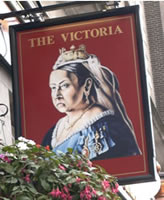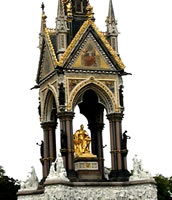Study, work or travel in the UK. British
culture and life.


The Victorian age in Britain (1837-1914)
|
|
Study, work or travel in the UK. British
culture and life.
|
|
||
|
|
|
|
||
 |
||||
|
|
|
|
||
|
|
||||
 |
||||
|
The Victorian age in Britain (1837-1914)
|
||||
| Ruling family | King/Queen | Dates |
| HOUSE OF HANOVER | Victoria | 1837-1901 |
| HOUSE OF SAXE-COBURG-GOTHA |
Edward VII |
1901-1910 |
|
HOUSE OF WINDSOR |
George V | 1910-1936 |
| Year | Prime Minister | Party |
| 1835 | William Lamb | Whig |
| 1841 | Robert Peel | Tory |
| 1846 | John Russell | Whig |
| 1852 | Edward Stanley | Conservative |
| 1852 | George Hamilton-Gordon | Conservative |
| 1855 | Viscount Palmerston | Liberal |
| 1858 | Edward Stanley | Conservative |
| 1858 | Viscount Palmerston | Liberal |
| 1865 | John Russell | Liberal |
| 1866 | Edward Stanley | Conservative |
| 1868 | Benjamin Disraeli | Conservative |
| 1868 | William Gladstone | Liberal |
| 1874 | Benjamin Disraeli | Conservative |
| 1880 | William Gladstone | Liberal |
| 1885 | Marquess of Salisbury | Conservative |
| 1886 | William Gladstone | Liberal |
| 1886 | Marquess of Salisbury | Conservative |
| 1892 | William Gladstone | Liberal |
| 1894 | Earl of Rosebery | Liberal |
| 1895 | Marquess of Salisbury | Conservative |
| 1902 | Arthur Balfour | Conservative |
| 1905 | Henry Campbell-Bannerman | Liberal |
| 1908 | Herbert H. Asquith | Liberal |
 The Victoria pub (near Victoria station) |
|
 The Albert Memorial, Kensington Gardens |
|
The
Age of Empire |
 |
The
Victorian Age 1837-1914 Publisher: Kingfisher Books Date: May 2002 |
|
 |
Life
in Victorian Britain Publisher: Pitkin Guides Date: April 1999 |
Victorian
Cookery: Recipes and History Author: Maggie Black Publisher: English Heritage Publications Date: November 2003 |
|
 |
Her
Majesty Mrs Brown (DVD) Studio: Buena Vista Home Entertainment Date: February 2001 Video |
|
|
|